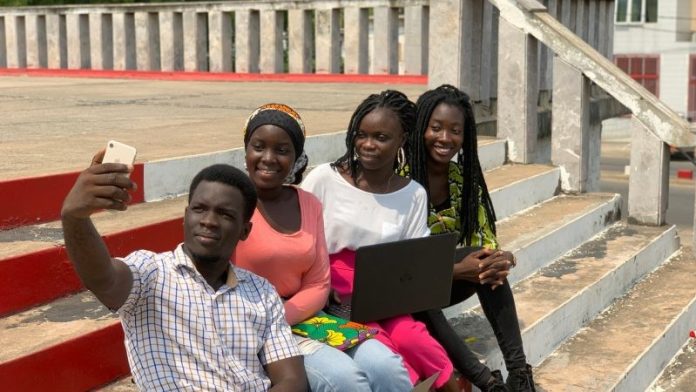By Victor Umedum
In today’s digital age, social media has become an inseparable part of youth culture. Platforms such as Instagram, TikTok, Snapchat, and Twitter are not just means of communication; they are arenas for self-expression, validation, and identity formation. But beneath the filters, reels, hashtags, viral trends and challenges lies a growing issue: the pressure to be perfect.
For many young Nigerians, social media is both a mirror and a magnifying glass. It reflects their aspirations and hopes, but also magnifies their insecurities. The constant exposure to curated lifestyles, flashy property, flawless selfies and highlight reels of others’ achievements creates an unrealistic standard of living; one that is often legally unattainable and emotionally draining.
The illusion of “perfection”
Social media thrives on beauty and aesthetics. From perfectly arranged breakfast plates, to gym toned bodies and designer outfits, in all, flashy lifestyle. The digital world rewards visual appeal. But what many seem not to realize is that these “exotic lifestyles” are often staged, edited or are outright lies. Why?, you may ask. Because they represent MOMENTS AND NOT REALITIES.
Yet, for the average youth scrolling through their feed, the line between reality and performance blurs. They begin to compare themselves to these people online in order to “meet up” with the latest trends, fashion and all what not.
All these give them the feeling of inadequacy which keeps fueling and stoking the fire of “get rich quick” syndrome in our youths, young men venture into money rituals or internet fraud (yahoo yahoo) and young girls into prostitution, all in a bid to live up to the standards of these influencers. This constant comparison breeds anxiety, low self-esteem, and even depression. The pursuit of perfection becomes a trap, one where authenticity is sacrificed for approval.
The Mental Health Toll
Numerous studies have linked excessive social media use to mental health challenges among youth. The Nigerian context is no exception. With limited access to mental health resources and a culture that often stigmatizes emotional vulnerability, many suffer in silence.
Some common effects include:
Anxiety and social pressure: The fear of missing out on the latest trends which often leads youth to go out of their way in order to meet up with latest updates can lead to chronic stress.
Depression: Feelings of inadequacy and isolation intensify when one’s life seems less exciting than others. This can make one to feel depressed because he or she doesn’t have what others have.
Body image issues: This occurs mostly in the females who see different models online with different unrealistic beauty standards and products which makes them feel unsatisfied with their body. Also the male folk, when they see different body builders with huge muscles, they begin to see themselves as “not perfect” and tend to expose themselves to dangerous activities.
Over-expectations and disappointment: Most of these content ingested by youths make them to have different expectations and set ridiculous and unrealistic standards when the time comes for marriage all in the name of “finding the perfect match”. These outrageous standards are often gotten from the content creators who most youths have made their role models.
All these end in disappointment because they tend not to find anybody that reaches their requirements. This also results in the amazing eventuality of young women growing old while looking for their prince charming, while their so-called mentors end up getting married and making families happily ever after.
Reclaiming Authenticity
So, how do we break free from the perfection trap? The answer lie in education, empathy, and intentional living.
First of all, there should be digital literacy in schools; Educational institutions must go beyond teaching math and science. Digital literacy should include real-life lessons on online behavior, emotional resilience, and media manipulation. Students should learn to critically cite and analyze what they see online and understand the difference between curated content and real-life.
Secondly, parents have a role to play in the lives of their children by engaging in their digital lives; not with judgement, but with curiosity and support. Conversations about self-worth, peer pressure, and online safety should be regular and honest. This would go a long way in modeling healthy behavior and morals development.
Faith and inner strength: Faith should be a source of strength and a stronghold for every youth. Spiritual teachings can offer grounding in a world of shifting values. Encouraging young people to find identity in their beliefs rather than their online presence can build resilience and purpose for pure ideas and holy foundations that form the basis of their social life.
Conclusion
To every young person reading this: you are more than your profile. Your worth is not defined by your likes, your beauty is not measured by filters, and your success is not limited to viral online trends.
Be kind to yourself and always be yourself, not allowing anybody oppress you with their lifestyle and remember to include the lord in your everyday life. Surround yourself with people that value you for who you are and not for what you have or show. Share your truths, not just your triumphs and achievements.
And remember; perfection is a myth, authenticity well, that’s power.
The pressure to be perfect will not vanish overnight. But with collective efforts from educators, parents, and the youth themselves, we can build a culture that values honesty over hype, connection over comparison and healing over hiding.
Victor Umedum writes from Awka, Anambra State





Perfection is a myth
While Authenticity is POWER
Nice write up 😊
Thank you 😊💕